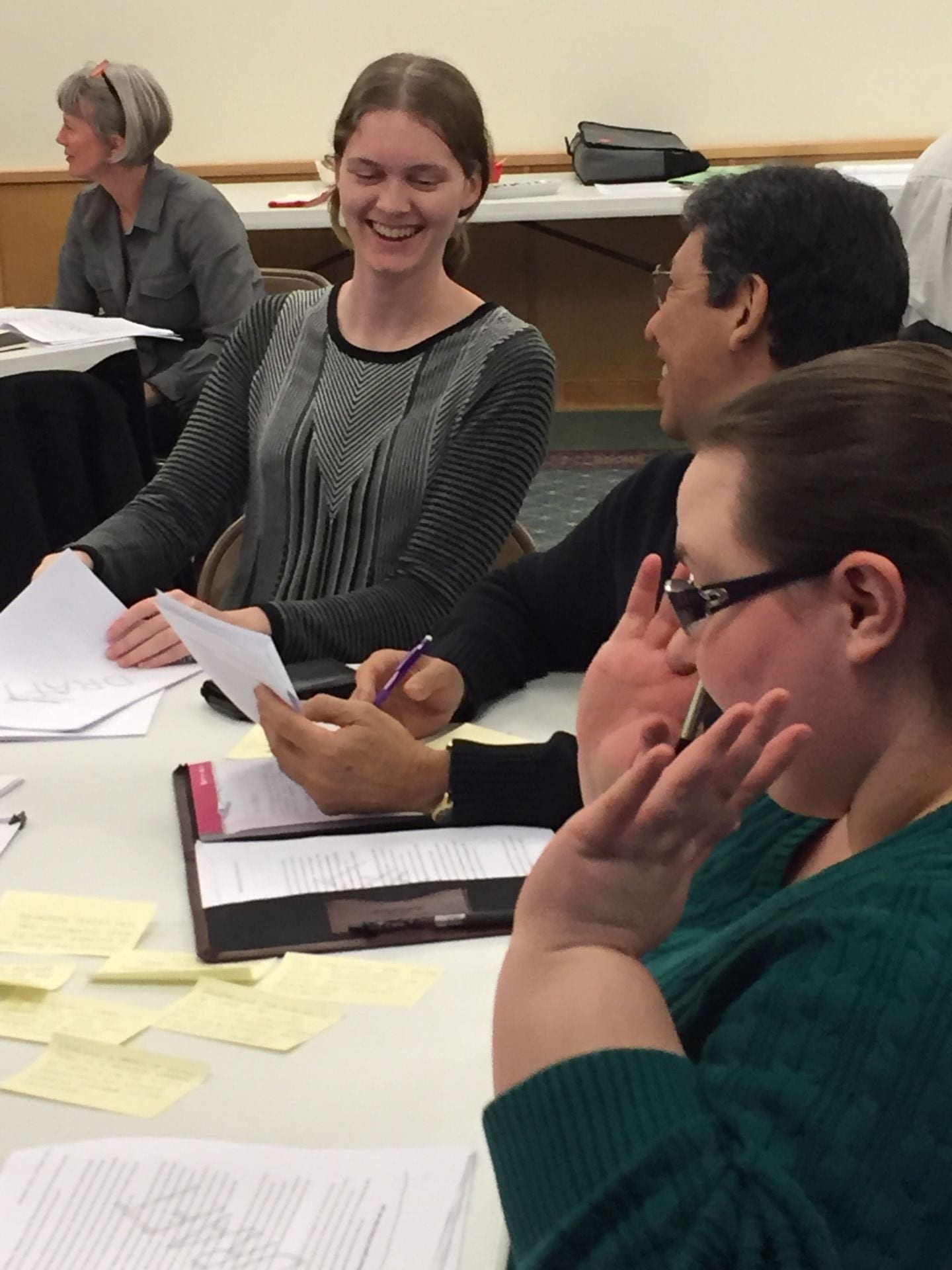Of Apples and Cows: Some Reflections on Housing Data
Imagine that you had to prepare a report on different ways that a community could address food shortages. Imagine that the report had to deal with the nuances of the food market and still be understandable to community members without a background in the topic. Imagine that in the report, you had to work with highly localized, sometimes discrepant data points. (For the sake of the data points metaphor specifically, imagine that you did not even have the data necessary to compare apples and oranges and so you instead had to compare apples to something very different–like a cow.) Imagine that despite all of these challenges, it was important that you wrote the best report possible because it would be used by businesses, various governmental bodies, non-profits, and advocacy groups to improve your community.

Me plunging into the unknown with some wonderful, smart members of the community who are dedicated to addressing our affordable housing problem.
My supervisor, Catherine Veninga, and I have been trying to do all of the above while trying to write and edit a report on our region’s affordable housing problem. In January, we both worked frantically to complete a first draft of the study report that first laid out the need for affordable housing and then moved into the barriers to access as well as potential solutions. This report was based on 15 weeks of speakers’ presentations. These speakers brought a wealth of knowledge from the business, non-profit, local government, labor economics, and state government perspectives on the affordable housing problem in our region. While each speakers’ specific piece was illuminating, it was very difficult to see how these pieces might be arranged in a way to create a succinct, not-overly-partisan narrative about our affordable housing problem. This was especially true because our region extends down into Milton-FreeWater in Northeastern Oregon. In a lot of instances, Washington and Oregon do not have equivalent statistics for measuring housing affordability or equivalent state agencies that deal with affordable housing problems. This can be a source of inspiration and simultaneously a source of frustration when you are left to compare apples to cows so to speak.
As of today–March 5th, 2019–we are finally moving out of the phase where we are gathering information for and writing the report and starting to move into the phase where we use the report to generate some basic conclusions about the affordable housing problem in our region. I know that will involve me going around the room at our meeting and helping to moderate some group discussions among various community members, but I do not know exactly what else will entail. However, I am excited to see what today’s discussion generates. If there is one thing that I have learned from the last two months, it is that the unknown should not be a source of fear. Instead, it should be a call to ask how it can be compared with what is known to fit into a larger narrative that can improve one’s community.
Experiences like Georgia’s are made possible by the Whitman Internship Grant, which provides funding for students to participate in unpaid internships at both for-profit and non-profit organizations. To learn how you could secure a Whitman Internship Grant or host a Whitman intern at your organization, click here or contact Assistant Director for Internship Programs Victoria Wolff